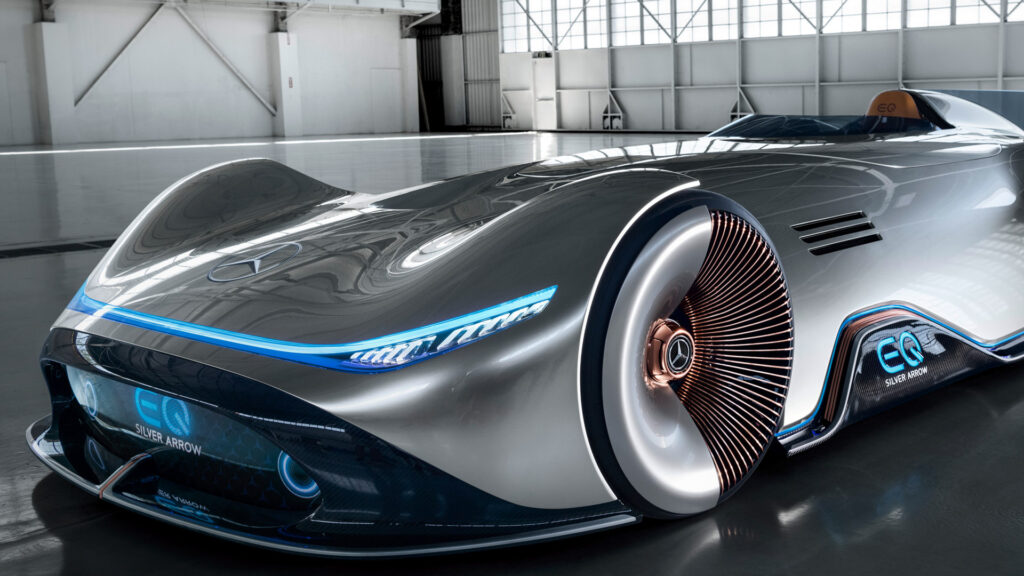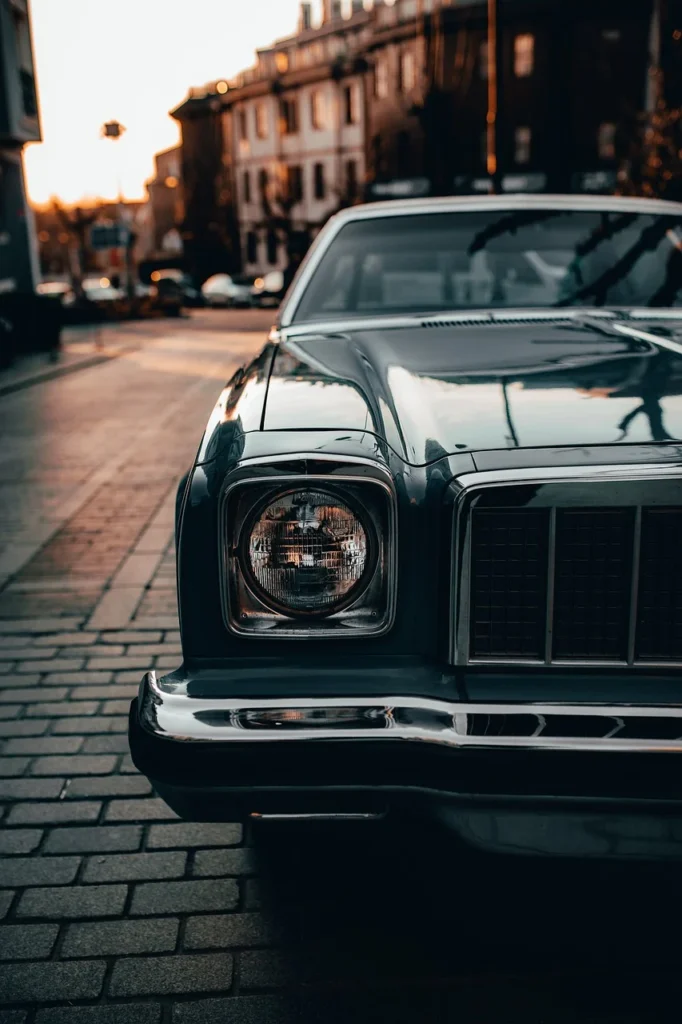The automotive industry is on the brink of a revolutionary transformation, where luxury cars are not just symbols of status but also champions of sustainability. In “The Future Of Luxury Cars: Merging Technology With Sustainability,” we delve into how cutting-edge technology is reshaping the luxury vehicle landscape. As consumers become increasingly eco-conscious, manufacturers are responding by integrating advanced technologies that promote energy efficiency and reduce carbon footprints. This article will explore the intersection of luxury and sustainability, highlighting the innovative solutions that are setting new standards in the automotive world.
As we navigate through this exciting topic, readers will discover the latest advancements in electric and hybrid vehicles that are redefining luxury. From autonomous driving features to smart connectivity, the future of luxury cars is not only about performance but also about creating a seamless and eco-friendly driving experience. We will also examine how leading automotive brands are prioritizing sustainable materials and manufacturing processes, ensuring that luxury does not come at the expense of our planet.
Join us on this journey as we uncover the trends and technologies that are shaping the future of luxury cars. Whether you are an automotive enthusiast or simply curious about the evolution of luxury vehicles, this article promises to provide valuable insights and inspire you to think differently about what luxury means in a sustainable world. Read on to learn how the fusion of technology and sustainability is paving the way for a new era in luxury automotive design.
As the automotive industry evolves, luxury cars are increasingly integrating advanced technology with sustainable practices. This shift not only enhances the driving experience but also addresses environmental concerns. Below are key subtopics that explore this exciting intersection.
Electric Vehicles: The New Standard in Luxury
Electric vehicles (EVs) are rapidly becoming the standard in the luxury car market. With advancements in battery technology, luxury brands are now able to offer vehicles that not only provide high performance but also reduce carbon emissions. The shift towards EVs is driven by consumer demand for sustainable options, as well as government regulations aimed at reducing greenhouse gas emissions.
Luxury automakers are investing heavily in research and development to create electric models that rival their traditional combustion engine counterparts. Features such as rapid charging, extended range, and high-performance capabilities are becoming commonplace, making EVs an attractive choice for luxury consumers.
Sustainable Materials: Redefining Luxury Interiors
The use of sustainable materials in luxury car interiors is gaining traction. Brands are exploring alternatives to traditional leather and plastics, opting for materials like recycled fabrics, vegan leather, and sustainably sourced wood. This not only reduces the environmental impact but also appeals to a growing demographic of eco-conscious consumers.
By incorporating these materials, luxury car manufacturers are redefining what it means to be luxurious. The focus is shifting from opulence to sustainability, creating a new standard for luxury that aligns with modern values.
Autonomous Driving: Enhancing Efficiency and Safety
Autonomous driving technology is revolutionizing the luxury car segment. With features like adaptive cruise control, lane-keeping assistance, and full self-driving capabilities, luxury vehicles are becoming safer and more efficient. This technology not only enhances the driving experience but also contributes to sustainability by optimizing fuel consumption and reducing traffic congestion.
As manufacturers continue to develop and refine autonomous systems, the potential for reducing accidents and improving road safety becomes increasingly significant. This aligns with the luxury market’s commitment to providing not just comfort, but also peace of mind for drivers and passengers alike.
Smart Technology: Connectivity and User Experience
Smart technology is at the forefront of luxury car innovation. Features such as advanced infotainment systems, voice recognition, and seamless smartphone integration are enhancing the user experience. These technologies not only provide convenience but also promote safer driving by minimizing distractions.
Moreover, the integration of smart technology allows for real-time monitoring of vehicle performance and energy consumption, enabling drivers to make informed decisions that contribute to sustainability. This level of connectivity is becoming a hallmark of luxury vehicles, appealing to tech-savvy consumers.
Renewable Energy Sources: Powering Luxury Cars
Luxury car manufacturers are exploring renewable energy sources to power their vehicles. Solar panels integrated into car designs and partnerships with renewable energy providers are becoming more common. This approach not only reduces reliance on fossil fuels but also enhances the sustainability profile of luxury brands.
By harnessing renewable energy, luxury automakers can offer consumers a more environmentally friendly option without compromising on performance or luxury. This shift is indicative of a broader trend towards sustainability in the automotive industry.
Carbon Offsetting: A Commitment to Sustainability
Many luxury car brands are adopting carbon offsetting strategies to mitigate their environmental impact. This involves investing in projects that reduce carbon emissions, such as reforestation or renewable energy initiatives. By offsetting their carbon footprint, luxury automakers can appeal to environmentally conscious consumers while maintaining their commitment to sustainability.
This practice not only enhances the brand’s image but also aligns with the values of a growing segment of consumers who prioritize sustainability in their purchasing decisions. Carbon offsetting is becoming an essential component of luxury car marketing strategies.
The Role of Government Regulations in Shaping Luxury Cars
Government regulations play a crucial role in shaping the future of luxury cars. Stricter emissions standards and incentives for electric vehicle adoption are pushing manufacturers to innovate and invest in sustainable technologies. These regulations are not only driving change within the industry but also influencing consumer preferences.
As governments worldwide implement policies aimed at reducing carbon emissions, luxury car brands must adapt to remain competitive. This creates an opportunity for innovation and collaboration between manufacturers and policymakers to promote sustainability in the automotive sector.
Consumer Trends: The Shift Towards Eco-Conscious Luxury
Consumer trends are shifting towards eco-conscious luxury, with buyers increasingly prioritizing sustainability in their purchasing decisions. This trend is evident in the growing demand for electric vehicles, sustainable materials, and brands that demonstrate a commitment to environmental responsibility.
Luxury car manufacturers are responding to this shift by incorporating sustainable practices into their business models. By aligning their offerings with consumer values, these brands can enhance their appeal and ensure long-term success in a competitive market.
| Aspect | Description |
|---|---|
| Introduction | The luxury car market is evolving, focusing on integrating advanced technology with sustainable practices to meet consumer demands and environmental standards. |
| Technological Advancements | Luxury cars are incorporating cutting-edge technologies such as AI, autonomous driving, and advanced infotainment systems to enhance user experience and safety. |
| Sustainability Initiatives | Manufacturers are adopting eco-friendly materials, electric powertrains, and sustainable production processes to reduce their carbon footprint. |
| Consumer Preferences | Today’s luxury car buyers are increasingly prioritizing sustainability, seeking vehicles that reflect their values and commitment to the environment. |
| Challenges | Balancing luxury with sustainability poses challenges, including high production costs and the need for extensive infrastructure for electric vehicles. |
| Future Trends | Expect to see more hybrid and fully electric luxury vehicles, increased use of recycled materials, and innovations in battery technology to enhance performance and sustainability. |
| Conclusion | The future of luxury cars lies in the successful integration of technology and sustainability, creating vehicles that are not only luxurious but also environmentally responsible. |



